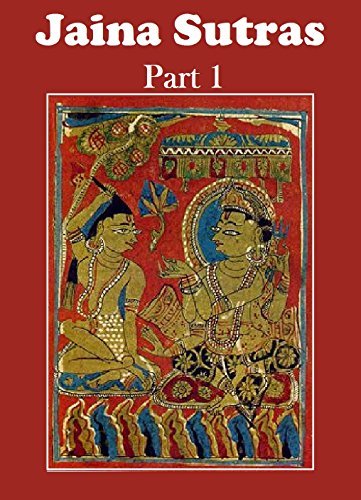Acaranga-sutra
by Hermann Jacobi | 1884 | 71,211 words | ISBN-10: 8120801237 | ISBN-13: 9788120801233
The English translation of the Acaranga Sutra, which represents the first the 12 Angas in Shevatambara Jainism. It is traditionally dated to the 5th-century BCE and consists of two parts containing lectures based on the teachings of Mahavira. Topics include: lifestyle of an ascetic: conduct, behavior, collecting alms, clothes, mode of walking and ...
Lecture 4, Lesson 2
There are as many āsravas[1] as there are parisravas, and there are as many parisravas as there are āsravas. There are as many anāsravas as there are aparisravas, and there are as many aparisravas as there are anāsravas. He who well understands these words and regards the world according to the instruction (and understands), that which has been distinctly declared, that ‘wise man proclaims (the truth) here to men,’ who still belong to the saṃsāra, who are awakened, and have reached discrimination. (1)
‘Those also who are afflicted and careless’ (will be instructed). I say this as a truth. There is nothing secure from the mouth of death. Those who are led by their desires, who are the tabernacle of fraud, ‘who seized by Time dwell in the heap (of karman),’ are born again and again. [Many who are again and again (immersed) in delusion, (will often renew) their acquaintance with the places of pain; they experience the pains inherent in regeneration. He who often does cruel acts, often undergoes (punishment in hell, &c.) He who seldom does cruel acts, seldom undergoes (punishment).][2] (2)
Some say thus, also the wise ones; the wise ones say thus, also some others[3]. Many and several in this world, Brāhmaṇas or Śramaṇas, raise this discussion: We have seen, heard, acknowledged, thoroughly understood, in the upper, nether, and sidelong directions, and in all ways examined it: all sorts of living beings may be slain, or treated with violence, or abused, or tormented, or driven away. Know about this: there is no wrong in it. (3)
That is a doctrine of the unworthy. But those who are teachers, have said: You have wrongly seen, wrongly heard, wrongly acknowledged, wrongly understood, in the upper, nether, and sidelong directions, in all ways wrongly examined it, when you say thus, speak thus, declare thus, explain thus: All sorts of living beings may be slain, or treated with violence, or abused, or tormented, or driven away. Know about this: there is no wrong in it. That is a doctrine of the unworthy. (4) But we say thus, speak thus, declare thus, explain thus:
All sorts of living beings should not be slain, nor treated with violence, nor abused, nor tormented, nor driven away. Know about this, there is no wrong in it. This is the doctrine of the teachers. (5)
First the persuasion of every one should be ascertained, and then we will ask them severally: Ye professors! is pain pleasant to you, or unpleasant? If they give the right answer, reply: For all sorts of living beings pain is unpleasant, disagreeable. and greatly feared. Thus I say. (6)
Footnotes and references:
[1]:
[2]:
The passage in brackets is introduced by the words pāṭhāntaraṃ vā, 'various reading.' It occurs in all MSS. I have consulted, and is commented upon by the commentaries as belonging to the text.
